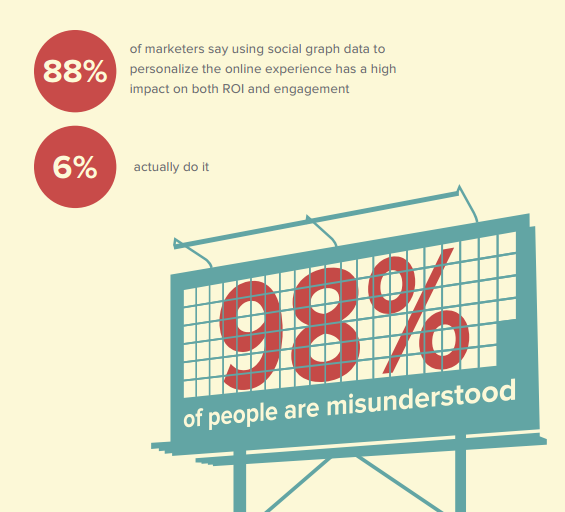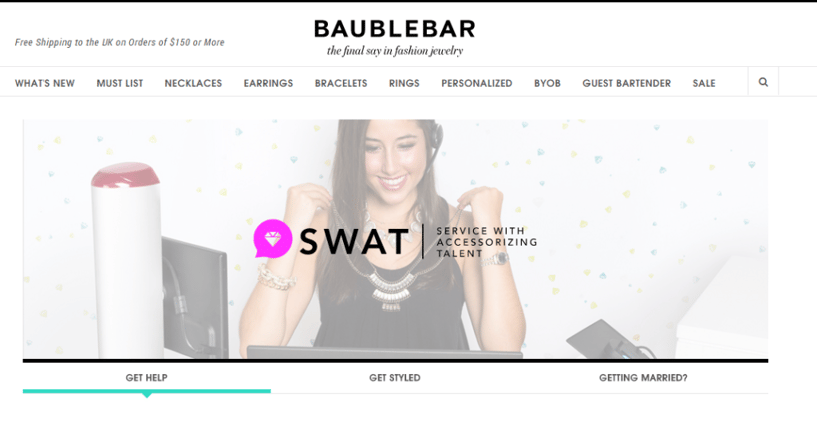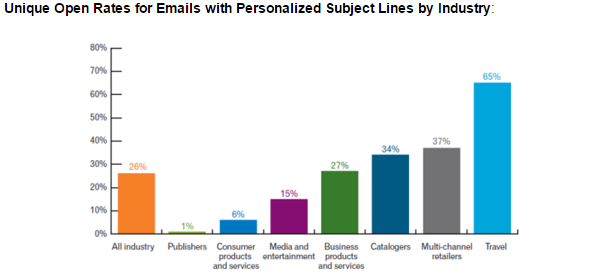The digital marketing world is constantly in a state of change. In recent years, one of the most important changes has been personalisation. With data culture becoming more widespread than ever and with advanced research technologies at their fingertips, brands have shifted towards a personalised approach.
For the hospitality industry, personalisation is key – we’re not just selling a single product, we’re ideally selling an experience that can extend over days or even weeks. This means that making potential guests feel specifically welcome and wanted is key to gaining their business.
How do your hotel’s potential guests feel about personalisation? Overwhelmingly, the research shows that consumers today expect it – and they want it. They are no longer satisfied with “one size fits all” marketing messages.
According to an Online Personal Experience study by Janrain, nearly 74% of online consumers get frustrated with websites when content (e.g. offers, ads, promotions) appears that has nothing to do with their interests.
Larry Drebes, CEO of Janrain, sums it up like this:
“These results align perfectly with additional market research indicating that consumers have reached the tipping point when it comes to being shown content that isn’t relevant to them. It’s a wakeup call for brands to fix this problem or risk losing customers and prospects.”
The importance of personalisation resonates with consumers across the board. Why is it so important, though? Let’s look at it from a psychological perspective to understand its effects better.
Why We Yearn For Personalised Experiences
(Image source)
According to a study by the University of Texas, our craving for personalised experiences stems from two key factors:
- Desire for control
- Information overload
Let’s first look at our desire for control.
When it comes to personalised experiences, you’re not getting the same thing as everyone else. You’re not getting the status quo.
What’s key here is that, because you’re getting something that is specifically for you, you feel like you have more control.
Even if you don’t actually have total control over your options, when you know something is tailored to your interests, you feel as if you have more control with what you’re engaging with.
This small element of control carries huge weight. Research shows that people who perceive themselves to be in control of their outcomes and choices – instead of feeling external forces are to blame – tend to be happier, healthier, and more successful.
Because of this, of course we gravitate towards companies and experiences that let us feel like we’re in control! So take a look at your hotel website – is it targeted towards your guest personas? Are you letting your guests feel like your hotel is meant for them?
Now, let’s tackle the second factor…information overload.
Ever heard of the paradox of choice? It is a well-known psychological principle that states too much choice or information causes tension in the mind.
Personalisation reduces our perception of information overload. Why? You don’t have to filter and analyze an ocean of content. You’re just given content that you’re already interested in, which prevents you from being “overloaded”.
Personalisation is pretty powerful, but not everyone is making use of it.
(Image source)
The fact is, most marketers are slacking when it comes to personalisation…
- In 2014, only 6% of marketers planned to use personalised marketing
- Only 31% of consumers reported that brands are continually delivering personalised experiences
- 40% of consumers say most promotions don’t deliver anything of interest
This is a big mistake. If hotel marketers want to excel in 2016, they need to step their personalisation game up.
Why Hoteliers Should Prioritize Personalisation in 2016
Potential Guests Prefer Personalized Experiences
(Image source)
Consumers love personalised experiences. Take a look at fashion store BaubleBar for a great example.
They significantly boosted sales by encouraging customers to shop with stylists in a browser pop-up video chat service. That’s a pretty unique twist!
While customers shop online, stylists answer questions and suggest which jewellery matches a certain dress, accessory or figure. This adds a more personal brick-and-mortar feel to the store, says their VP of customer experience.
By using video to personalise their interactions, they increased order value by a huge 300%.
While this kind of resource expenditure won’t be for everyone, live chat is a lower-investment option that your hotel website might thrive with.
Personalized Emails Perform Better
Research from Experian shows that personalised emails deliver 6x higher transaction rates.
Personalised promotional mailings had 29 percent higher unique open rates and 41 percent higher unique click rates. What’s more interesting, however, is that personalized emails seem to work better in the travel industry than in any other.
(Image source)
Personalization Will Improve Customer Targeting
As a hotelier, not only do you want to fill up your hotel, but you want to fill it with the right customers. This can cost a pretty penny with PPC ads, paid social, and fees from OTAs.
By taking advantage of personalised marketing, hoteliers will be able to accurately target guests. They’ll no longer blast out ads with the “spray and pray” approach; instead, they’ll use personalisation to tactically target and attract customers that bring the biggest returns.
Personalization Improves Customer Retention
Customer retention is important in any industry, but even more so in the hospitality industry where competition is fierce.
Increasing customer retention rates by a tiny 5% increases profits by 25% to 95% (Bain & Co). Also, when it comes to retaining customers with loyalty programmes, personalized offers were one of the driving factors.
Conclusion
Personalizing customer experiences will soon become the norm, and hoteliers must adapt to this to propel themselves ahead of the competition. With personalised emails, websites tailored for your guest personas and a little creativity, you can make the decision to book easy for your potential guests.
How will you incorporate personalisation into your 2016 marketing strategy?







